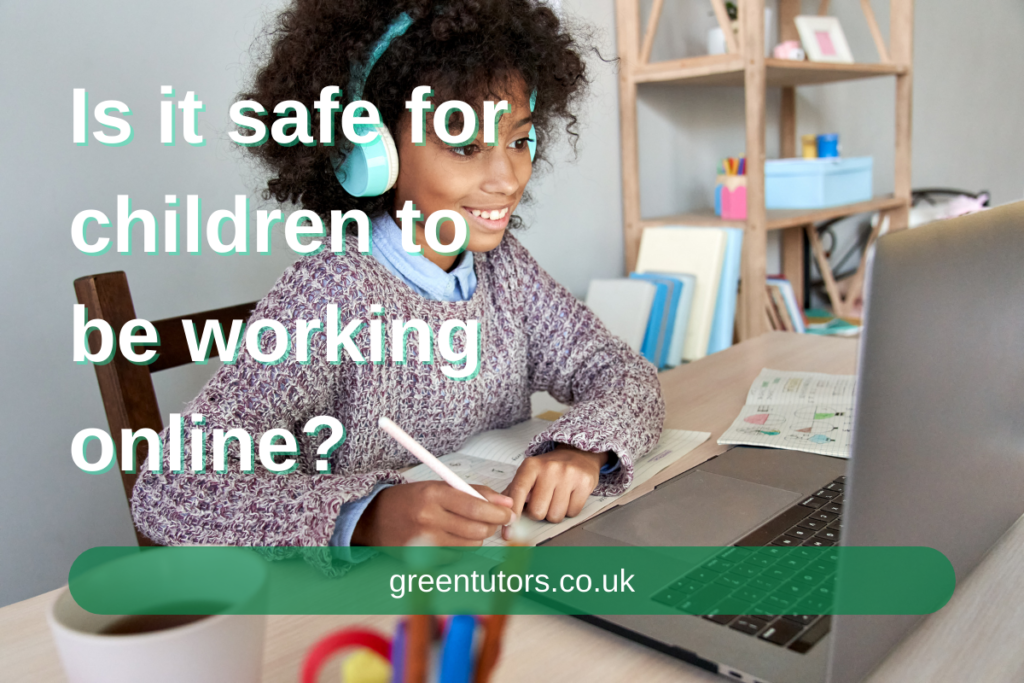
In our current climate, more and more of our interactions are taking place through the internet. And while these platforms have always existed, their rapid growth and uptake in new areas have identified potential problem areas. Parents ask themselves, is it safe for children to be working online?
We’ve all seen the news stories of Zoom-bombing incidents, online grooming gangs, phishing emails, etc. It’s enough to make you join with Fox Mulder and Trust No One.
Parents are (understandably) worried about the prospect of their children having access to the internet and in particular, social media. It gives them ready access to a world that is impossible to control. And I’m sure your own experiences have not always been positive. What proportion of the messages you receive are from people you don’t know? I’m sure we’ve all received some dubious unsolicited messages.
Most adults are savvy enough to identify messages with bad intentions, and hit the block and report options. But that understanding comes from experience, and experiencing this is what we’d like our children to avoid.
There are things that you can do to create a safety buffer for them, and I’d like to share some of these with you here. I’d love to hear from you about your own experiences too.
Online lessons
At some point this year, it is likely that your child has had some of their school resources provided to them online. This has been happening for many years, but again this year has become more widespread.
For this purpose, whatever platforms the schools use, they tend to provide each student with a school login, on their school domain. The student email addresses will have the same domain as the staff email address (the part following the @) to make them easy to identify. This means that their resources can only be accessed by accounts that are part of this domain, and accounts are only provided to students and staff. No one will be able to connect to these resources with a personal email account. This is protective both ways – only approved members are allowed in, and there are no links out.
Why is it important that there are no links out? If your child (or their teachers) have online accounts elsewhere with these same email addresses, it will be possible to find them from those details. Your child might not want their peers and school staff to be able to find them on other platforms, so it is better to use separate details. Additionally, most school staff don’t want their students to see their social media accounts, and certainly shouldn’t encourage the use of those platforms for communication. It is much better to keep them completely separate.
For the same reason, your child should never log in to social media accounts using their school login. Not only does it make that connection again, but it also shows which school they attend. That’s a potential opening for potential catfishing, or other unscrupulous messages. It would be easy to pretend to be a peer reaching out through a faceless platform.
Within Green Tutors, materials are shared with parents directly, and using our own domain, so that parents and students will know that they are talking to their DBS checked tutor.
Learning about online safety
There are so many places that you can go online to learn about keeping children safe online, and to teach your kids about internet safety too. Here are some of the best resources that answer the question, ‘Is it safe for children to be working online?’
Internet Matters
This website is all about helping parents to keep their children safe online. There are guides to almost everything you might need to know for working safely online, downloadable checklists, conversation prompts, and also links to lots of great online resources for your child.
For teenagers studying online, check out the resources at https://www.internetmatters.org/schools-esafety/secondary.
NSPCC
https://www.nspcc.org.uk/keeping-children-safe/online-safety/
This site covers a high level overview of the many aspects of child safety online, as well as some tips on how to prevent, mitigate, and respond to any safety issues. Here are their top tips for video streaming.
Tips for video streaming
1. Talk to your child
Talk to them about what they’re doing online and how they can stay safe. Let them know they can come to you, or another adult they trust if they’re feeling worried or upset by anything they’ve seen online. They can also get support from Childline.
2. Explore apps and sites together
Explore what your child likes to do online together. This can help you to understand why they’re using certain livestreaming or video apps. You can use Net Aware, in partnership with O2, to help you.
3. Agree what’s appropriate together
Agree your own rules as a family when using apps, sites or games. You can use the O2 and NSPCC family agreement template to help get you started.
4. Check your settings
Check the technology your family uses and use privacy and location settings to keep your child safe. You can call your mobile and broadband provider to find out how to do this. Visit our parental controls page to find out more.
Net-Aware
If you’re worried about specific apps or threats online, you can look them up at https://www.net-aware.org.uk/ and find out more about them. Not only does this tell you how safe they are, but also how you can set them up to be as safe as possible, what they are used for, and you can sign up to their mailing list for updates.
It also won the Internet Matters Digital Safety award for the Best Product or Service for Parents.
BBC Bitesize
bbc.co.uk/bitesize/guides/zrtrd2p/revision/1
Most teens are familiar with this site as a place for online revision. I use it with my own students, and even used it when I was preparing for my GCSEs. It’s very up to date, and I’d definitely recommend it. It is a completely one-way platform, so a totally safe way to learn.
It also has a course on eSafety aimed at 11-14 year olds at the link above.
ThinkUKnow
This website is designed for children to access information themselves about the various issues they may face on and offline.
This can be a great approach if you’re concerned about them keeping problems from you, or being embarrassed to talk about things. Teens like to think their parents don’t know everything or understand their problems. I know well that mothers are psychic and know way more than they are told about their children’s lives.
It is certainly good to encourage them to talk to you first, and you can prompt them with a relaxed conversation. But it can be good to help them feel that they’re in control and learn their own coping mechanisms.
Interland
https://beinternetawesome.withgoogle.com/en_us/interland
This is a fun resource designed to teach children about using the internet safely, but is presented in a fun gaming style. They have to pass ‘levels’ to progress through the game by answering internet safety questions. There’s even a bit of geometry in there for the maths fans.
CyberGhost
https://www.cyberghostvpn.com/privacyhub/internet-safety-for-kids-guide/
CyberGhost provides a VPN for secure web browsing. Their privacy hub contains valuable articles on staying safe online, especially this article on how to keep children safe online.
You know your child the best, and you will know how smart they would be in working safely online, and coming to you if anything seems wrong.
This set of top tips to share with children from https://www.safetynetkids.org.uk/ is the best summary advice I’d share to get started with working safely online.
- Don’t post any personal information online – like your address, email address or mobile number.
- Think carefully before posting pictures or videos of yourself. Once you’ve put a picture of yourself online most people can see it and may be able to download it, it’s not just yours anymore.
- Keep your privacy settings as high as possible
- Never give out your passwords
- Don’t befriend people you don’t know
- Don’t meet up with people you’ve met online. Speak to your parent or carer about people suggesting you do
- Remember that not everyone online is who they say they are
- Think carefully about what you say before you post something online
- Respect other people’s views, even if you don’t agree with someone else’s views doesn’t mean you need to be rude
- If you see something online that makes you feel uncomfortable, unsafe or worried: leave the website, turn off your computer if you want to and tell a trusted adult immediately.
I hope this helps you to feel more comfortable about working online. When working with a company online, you should always be able to ask any questions you need to about how they improve and ensure the safety of your family, and at Green Tutors we’re happy to be able to put our clients at ease.
If you’re ready to get your child set up and working online, you can read more about building a comfortable work space for your child over at https://greentutors.co.uk/setting-up-a-productive-home-study-space.

Recent Comments